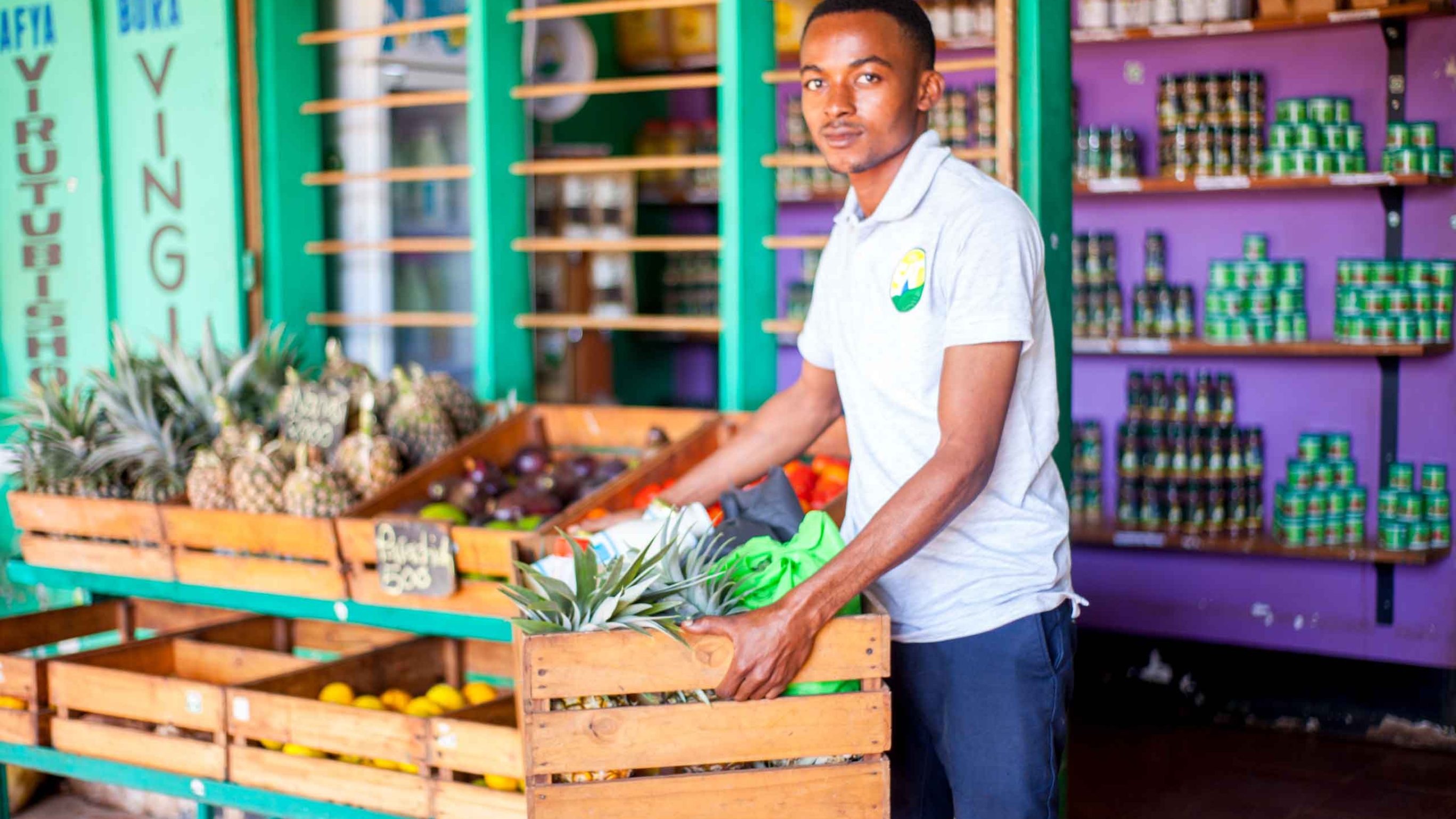Agroecology in the eyes of decision-makers, funders and entrepreneurs

Biovision Foundation seeks to continuously learn as an organization and to improve its programmes accordingly, including in the realm of agriculture and food systems policies and governance. To this end, Biovision has mandated Impaxio to analyze decision-makers attitudes and actions on agroecology.
Here we present the main results, two-years after baseline, on 1) decision-maker’s attitudes, preferences and actions on agroecological policies and funding, and 2) agroecology characteristics of projects funded by selected key institutions.
Key Insights
- The environmental benefits of Agroecology are perceived to be superior to conventional agriculture, economic benefits are perceived so to a lesser extent.
The results of the decision-maker survey show that respondents overall have (more) positive attitudes on Agroecology as compared to conventional agriculture. However, attitudes differ among distinct dimensions considered. We find that respondents think that Agroecology has favourable environmental effects, whereas conventional agriculture has clear unfavourable effects. In contrast, the economic effects of Agroecology are perceived to be similar to the economic effects of conventional agriculture. - The perception of Agroecology’s positive effect on food security and nutrition relative to conventional agriculture has increased in the past two years.
Participants perception on the food and nutrition effects of agroecology as compared to conventional agriculture have changed in the new survey wave (2023) as compared to the previous survey (2021). The food and nutrition effects of conventional agriculture are perceived less favourably, which resulted in overall distinctly positive perceptions on Agroecology in this dimension. - Agroecology is perceived to have favourable effects in dealing with implications of the global food price crises amid the war in Ukraine
Respondents assessed the potential implications of agroecology and conventional agriculture for the dependence on imports, and resilience to global food price and fertilizer price spikes. Overall, participants perceive Agroecology more favourably than conventional agriculture with regards to these dimensions. - Lack of evidence of Agroecology’s effects on national economic benefits is considered the most important barrier to the adoption of policies in support of agroecology.
Support for agroecological policies remained high, which demonstrates that there is broad support for a range of agroecological and general agricultural policies. Translating policy preferences to policy adoption, however, may require addressing policy adoption barriers. Participant consider the lack of evidence on national economic benefits of agroecology as the most important barrier to the adoption of policies in support of agroecology. - Stakeholders have increased their financial and policy support for Agroecology in the past two years.
As compared to the first survey wave, the increase in financial and policy support for Agroecology has accelerated. We find that respondent’s institutions have more strongly increased their investment in Agroecology relative to conventional agriculture. - Participants of Biovision events are more likely to hold favourable attitudes towards Agroecology, but are no more likely to take actions in support of Agroecology than non-participants.
We find that participants in Biovision events are more likely to show favourable attitudes towards Agroecology than conventional agriculture in the environmental and food crises dimension. However, participants in Biovision events not more likely to hold favourable attitudes for the economic and food security/nutrition dimensions than non-participants. We further find that participants are more likely to have increased the provision of financial support for Agroecology, but likewise the provision of financial support for general agriculture. When considering the provision of financial support for Agroecology relative to conventional agriculture, participants report stronger increases than non-participants, but these effects are not statistically significant. - Strong interest to provide support to agroecological enterprises, mainly via technical assistance and less so via capital.
A large share of participant’s institutions currently offers (44%), or is interested to offer in the future (37%), financing or technical support for agroecological enterprises. Technical assistance (e.g. capacity building) and grants to agroecological enterprises are the most frequently offered types of support, and only a small fraction offers (or is interested to offer in the future) capital or loans. - Characteristics of investing in agroecological enterprises perceived positively, especially for potential impact and diversification potential, and to a lesser extent for return/risk profiles.
The environmental and social impact, as well as the diversification benefits of investing in agroecological enterprises are perceived very positively. Returns on investment are expected superior to market returns, while study participants judge expected risk to be in line with market risk. In a portfolio context, diversification benefits are considered attractive. - Lack of access to concessional funds identified as main barrier to investing in agroecological enterprises, with number of target companies, search costs and regulatory restrictions posing further challenges.
The most important barrier that respondent’s institutions encounter when financing or when considering to finance agroecological businesses are a lack of concessional funds. Further important barriers are a small number of attractive target companies, regulatory restrictions and burdens, and high transaction and search costs. - Major donors have increased the share of agricultural funding provided to agroecological projects.
The share of funding allocated to agroecological projects overall (IFAD, Germany, Switzerland) has increased after the baseline year (2019). In the full sample, the share of funding allocated to agroecological projects increased from 74% (2019) to 83% (2022). This increase was mainly driven by IFAD, which allocated a much higher share of funding to agroecological projects by 2021, whereas Germany reduced the share of funding allocated to agroecological projects.
Image credit: Biovision/Anold William